With approximately 20,000 restaurants in New York City, seeking career and mentorship guidance can be daunting. In our latest interview, we had the privilege of sitting down with Robb Garceau, the culinary director of the New York Hospitality group. Renowned for his innovative work, Garceau developed and executed the famed Box Frites concession stand at the Mets’ Citi Field ballpark during his tenure with Union Square Events. He has also spearheaded numerous high-profile events, including the Veuve Clicquot Polo Classic and the Children’s Cancer and Blood Foundation Breakthrough Ball.
Garceau shares invaluable insights for aspiring culinary professionals, drawing from his extensive experience and expertise. From his personal journey to practical advice for success in the culinary industry, Garceau offers candid guidance and reveals how aspiring chefs can secure mentorship under his wing. Read the interview, discover the secrets behind culinary mastery, and potentially embark on a rewarding journey alongside this esteemed chef.
Did the way your family observed food direct you to a culinary career path?
Chef Garceau: Honestly, it was a bit of a fluke for me. My cousin invited me to lend a hand at the New York Yacht Club in Newport, Rhode Island. I was about two and a half years into my environmental science studies at college when he reached out. I thought, "Sure, why not?" I took on the role of head steward, managing all the deliveries coming into the club. Then, as fate would have it, a sous chef called in sick one day. Next thing I know, the chef is rushing downstairs, pulling me aside, saying, "You've got to help clean up in the kitchen." Now, I'd dabbled in cooking at home, but nothing prepared me for what I was about to face.
I vividly remember that day, standing at the sink, gazing out at the ocean, scrubbing away at 20 pounds of chicken. It was a surreal moment, realizing I'd never even seen that much chicken before. Before I knew it, I was knee-deep in peeling asparagus and preparing salads. I remember scribbling down notes as the chef rattled off instructions, thinking, I've got to remember this. It was like I got bitten by the culinary bug instantly. Even now, just talking about it gives me chills. From that moment on, I knew without a doubt that I wanted to pursue a career in the culinary arts.
How can one know that a culinary career it is the right path?
Chef Garceau: Well, for me, it's a passion, a feeling, a vibe. I love the disorganization of a kitchen, yet I thrive in controlled chaos. We get into this business out of love, and for me, I blend two worlds. Growing up in a small town with land and gardens, my parents taught me how to can and grow food. My parents ingrained it in me. Studying environmental science was a natural choice, given my upbringing and love for the land. Combining environmental science and food seemed like a logical pairing. No one in my family expected me to become a cook, but sometimes, it's instinctual.
If I'm going to tell somebody what to look for, sometimes it's just an instinct. The glitz of the restaurant world may be alluring, but it's a challenging life.
Despite challenges, I love coming to work every day. The camaraderie and teamwork are empowering.
What qualities do you look for when hiring culinary professionals?
Chef Garceau: When interviewing any aspiring cook or manager, I prioritize certain qualities.
Coachability is key. I want someone open to learning and willing to take feedback.
Growing up playing sports, I value competitiveness. It instills discipline and fosters creativity, essential traits in the kitchen. I often ask candidates if they consider themselves competitive. I also seek humility. A humble attitude indicates a willingness to collaborate and grow. I don't just look for technical skills; emotional intelligence is equally important. I refer to this as finding "51 percenters" – individuals who possess both technical skills and emotional intelligence. Mistakes are inevitable, so I ask candidates how they handle them.
I encourage a mindset that embraces mistakes as learning opportunities. This approach enables a culture of innovation and continuous improvement within the team.
Working with Jean-Georges and Danny Meyer was eye-opening for me. At Jean-Georges, I encountered intense competition but also learned a lot from talented colleagues. Moving to Danny Meyer's catering division, I underwent a thorough interview process and had the chance to cook for renowned chefs. Both experiences influence how I hire and mentor others. They played a role in shaping my approach to leadership in the kitchen.
What role does mentorship play in a chef's career?
Chef Garceau: I attended New England Culinary School in Montpelier, Vermont. Before that, I worked at the old Drovers in my hometown, a relay Chateau property, where I met Chef Francois. He taught me about sustainability and cooking with local ingredients. Francois encouraged me to pursue cooking school despite the intense pressure of working 90-hour weeks. Working with him toughened me up and deepened my respect for cooking.
I find mentoring incredibly important, especially now post-COVID. I've always mentored others, and it's heartening to receive random texts of gratitude.
It's inspiring when people open up and seek guidance, willing to make mistakes and improve. Today's workforce has changed, making mentorship more vital than ever.
How to get a culinary mentor?
Chef Garceau: That's a big thing. I've talked to many young chefs who struggle to ask for mentorship.
I believe it boils down to chemistry – just like any relationship. Without it, things won't click.
Mentorship isn't something you can force; it has to be driven by both parties. Sometimes, I can see potential in cooks in our kitchen and invest time in them, but other times, it's not there. Constant check-ins help gauge their willingness to learn and grow. Some may not know how to ask for mentorship due to a lack of confidence, language barriers, or simply not having the drive beyond a paycheck. As a mentor, I've offered guidance to those who showed interest, but not everyone takes it. And that's okay.
When seeking a mentor, remember that chemistry is key. Trust your instincts – if it feels right, pursue it.
How to build a successful kitchen?
Chef Garceau: We've seen a significant shift in our workforce due to people moving to other industries. Drawing from my experience coaching competitive hockey for a decade, I approach leading a kitchen similarly. Post-COVID, our team rapidly expanded from 3 or 4 people to over 20 full-time staff in our kitchen and another 25 off-premises chefs.
I believe in delivering messages calmly, without the need for raising my voice. Leading by example is mandatory; every team member watches and learns from my actions. It's about fostering camaraderie and ensuring everyone feels supported.
While I can't mentor every individual daily, I've prioritized training our team diligently over the past three years, preparing for the growth of our business. COVID taught me to think outside the box and empowered me to share my diverse skill set with our team. Collaboration is essential; I encourage everyone to voice their opinions and actively involve them in decision-making processes. This culture of respect, where everyone's voice gets heard, is crucial to our success. It's the secret ingredient in my recipe for a thriving team. a big thing. I've talked to many young chefs who struggle to ask for mentorship. I believe it boils down to chemistry – just like any relationship. Without it, things won't click. Mentorship isn't something you can force; it has to be driven by both parties. Sometimes, I can see potential in cooks in our kitchen and invest time in them, but other times, it's not there. Constant check-ins help gauge their willingness to learn and grow. Some may not know how to ask for mentorship due to a lack of confidence, language barriers, or simply not having the drive beyond a paycheck. As a mentor, I've offered guidance to those who showed interest, but not everyone takes it. And that's okay.
When seeking a mentor, remember that chemistry is key. Trust your instincts – if it feels right, pursue it.
Where do you see your career progressing?
Chef Garceau: Looking at the career progression, I see a focus on team evolution and business development. It's about ensuring each aspect of our business operates symbiotically and collaboratively, from food cost to cross-training. My role has shifted towards business development and creativity, especially as I navigate a new market in Westchester after spending 25 years in Manhattan. Despite the differences, the goal remains the same: to be competitive and establish ourselves as leaders in our market. While I still get my hands dirty in the trenches, washing dishes alongside the team, my focus has broadened to mentoring and coaching on a larger scale within our company.
For future sous chefs, I emphasize the value of loyalty and dedication. Spend time to truly learn and grow within a team.
This fosters invaluable experience and builds a solid foundation for long-term success. Rather than hopping between roles hastily, invest in your development by committing to at least two years with a team. It will allow you to immerse yourself fully, understand the nuances of the business, and establish meaningful connections. Loyalty and dedication pay off in the long run, laying the groundwork for a rewarding career trajectory.
Loyalty paired with belief in the team and the business, goes a long way – something I've personally experienced in my four years here and a commitment I plan to continue.
What's the one game-changing tip you wish you knew when you started your career in NYC?
Chef Garceau: That's a really good question. Well, back then, when I was first interviewing for restaurants in the city, I remember flipping through a paper listing all the top restaurants – Danielle, Ariel, Jean George. I didn't know what to expect. Armed with just my backpack, knives, and chef jacket, I hit the pavement. You never know who you'll meet.
I remember walking up the front steps of Jean-Georges, and by chance, he was there. That encounter led to an opportunity I hadn't anticipated. Explore as many places as possible when interviewing and show your true colors and hunger for the job. I remember Jean-Georges noticing my chef knives in my backpack and telling me to come back the next day. That decision led to me working alongside incredible talents like Wiley Dufresne and Gabriel Kreuther.
In a city with thousands of restaurants, leaving on good terms is crucial. Reputation matters.
My advice? Work hard, live with integrity, and always maintain a good reputation. If you can look at yourself in the mirror and be proud of who you are, you'll go far.
A final piece of advice for anyone on the culinary career path is...
Chef Garceau: Travel, whether abroad or to the other side of your own country, is invaluable. It exposes you to different cultures, behaviors, and perspectives that no amount of digital content can replicate.
Taking risks at the right time is also crucial. Don't fear making mistakes; I consider myself a perfectionist, but not to the point of obsession.
I'm analytical yet spontaneous, trying to reflect on what I could do differently without being too hard on myself. It's about finding balance and being able to sleep well at night knowing you've given your best. One of the most important lessons I've learned, especially from mentors like Michael Romano at Danny Meyer's, is the value of making mistakes. They're part of the learning process, as long as we're willing to acknowledge them, learn from them, and share those lessons with others.
Embrace mistakes, learn from them, and let them shape you into a better professional—that's the timeless advice from Chef Robb Garceau, a culinary master with a wealth of experience. Understand the culinary world through articles like this, where seasoned chefs share their candid insights and practical tips. Keep reading, keep learning, and let your passion for food guide you on an inspiring culinary adventure. Don't forget to explore tools and resume hacks to advance your job search.
About NY Hospitality Group
NY Hospitality Group was founded by owner Peter Herrero, whose journey in the food industry began with various roles in hospitality. Inspired by his passion for making people feel special and driven by an entrepreneurial spirit, Peter acquired the legendary Sam’s of Gedney Way, laying the foundation for the group. Today, NY Hospitality Group is dedicated to creating exceptional dining experiences and setting new standards of hospitality in New York City.
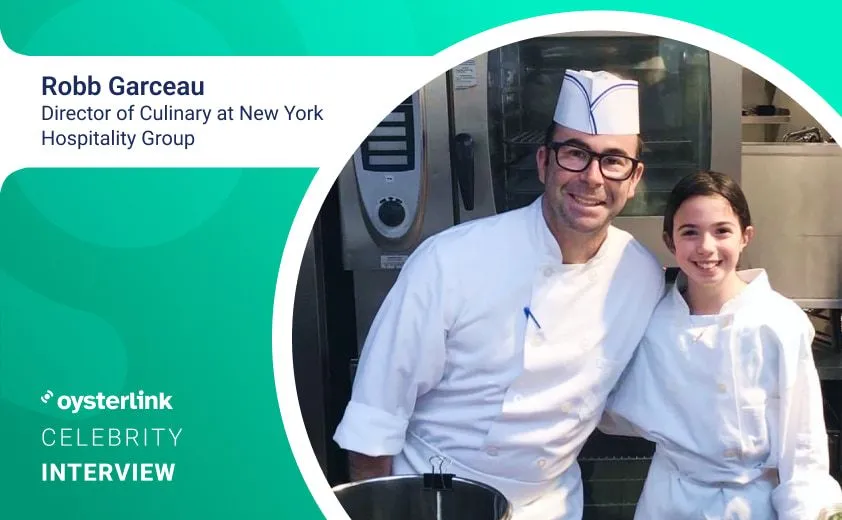

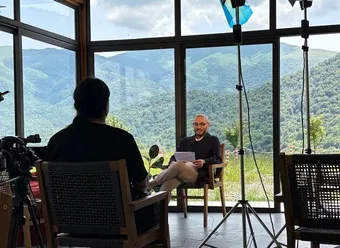
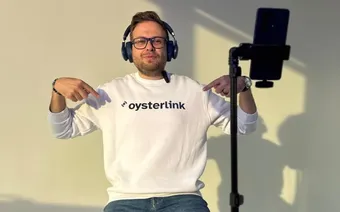
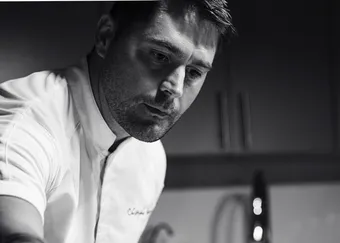
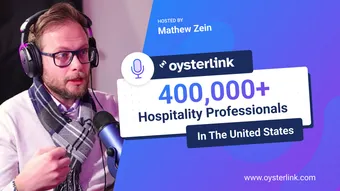
Loading comments...